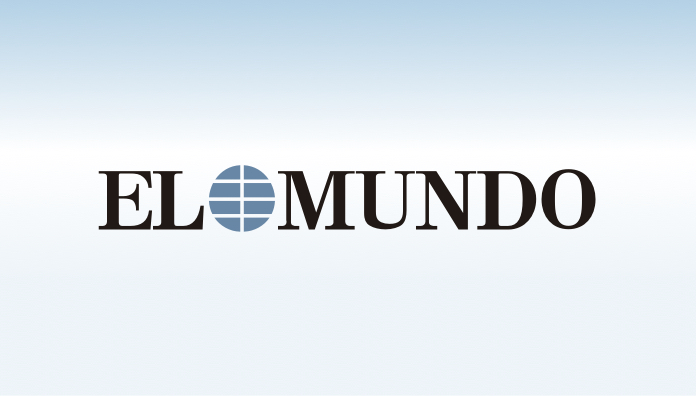- Asia: The political crisis unleashes an "economic tsunami" in Hong Kong
- Tension: China concentrates forces at the gates of Hong Kong
- Editorial.Hong Kong, a very risky pulse to China
Ko Chung Kit , nicknamed Jacky, frowned when he admitted that the social division that has generated the Hong Kong crisis affects his own family. "My 17-year-old son is on the other side. With the protesters. I can't talk to him about politics, but I always ask him not to resort to violence," he said.
The 40-year-old saxophone professor has become one of the leaders of the Hong Kong citizenship sector who supports the action of the local government and Beijing's policy towards the former British colony. "There are foreign countries that are manipulating our young people . The situation is very dangerous because it can generate more violence," said the Hong Kong in a very different environment than the one that has dominated the images of recent weeks.
This Saturday, Tamar Park, a few meters from the seat of the legislative parliament, did not host tens of thousands of opponents who demanded more democracy from Beijing but another impressive crowd of characters like Jacky, who proudly waved the flag of the People's Republic China and posters that read "Hong Kong is China". A crowd chanting the anthem of this country, repeated slogans such as "Opponents to violence, save Hong Kong" and took pictures with the police deployed in the area, while thanking them for their work.
"These young people are not realistic. They cannot believe that Hong Kong's independence is possible. I am afraid for the future of Hong Kong because this group does not use logic. They want to destroy the system . They act without thinking about the consequences and if they continue with its violent actions, Beijing may react in another way, "said Ashley Tse , one of the founders of the Hong Kong Youth Illustration group, another Beijing allied organization. During the call, which brought together 476,000 people, according to the organizers - the police reduced that figure to 100,000 -, the promoters of the event showed a video that summarized the double vision of the reality that now exists in this town.
The recording collected images of the young opponents destroying the parliament, throwing metal plates against the police and beating several civilians, including a Chinese media journalist. All this intermingled with a somber music that reinforced the desired effect.
"They are beasts. Some terrorists. The army has to intervene," said a man of a certain age when watching the video.
The perception of the reality that prevailed in the Tamar Park reflects the deep social rift that is causing the political crisis in Hong Kong, which has already resulted in several clashes in recent weeks between groups of civilians similar and opposed to Beijing. As in other similar situations, the militants of both sectors place the responsibility for this escalation on their adversaries by finding themselves stuck in an unstoppable spiral.
A few kilometers from Tamar Park, another handful of Hong Kong people, followers in this case of the opposition movement that has been mobilizing for weeks, was marching at almost the same time on a nth day of protest.
Antony, a 20-year-old boy, acknowledged that the so-called democratic group "has evolved" since the first popular congregations that demanded the repeal of the extradition law supported by Beijing. He argued that the recourse to "certain doses of violence" is "necessary" in his opinion regarding the "lack of response of the local government to the huge peaceful marches that we have organized." "This is a revolution, we fight for our future. We may have been wrong sometimes, but we continue to learn. We cannot be violent with the population, but if it was necessary to assault Parliament , to make it clear that it does not represent us," he added.
Despite the stereotype, reminiscent of this city as a metropolis absorbed by business and oblivious to political disquisitions, the present rampage has revived the collective memory, recovering the episodes of violence that happened in the past, which are now used with all the political intentionality required by both sides.
Therefore, this afternoon, when young people opposed to the aegis of Beijing passed to one of the headquarters of the FTU, the Federation of Trade Unions of Hong Kong, they began throwing eggs against its facade while leaving a row next to the entrance of pineapples The fruits were intended to be an ironic wink towards the "homemade pineapples" - Molotov cocktails and artisanal bombs - used by their members during the 1967 revolt, sponsored by the Maoist movements.
The images of those turbulent events - where 51 people died and more than 800 were injured - were also dominated by confrontations with the police, tear gas and violence. For the authorities of that era - the British Empire - the actions of the rebels received a conclusive qualification: terrorism . The same term to which Beijing has now resorted to disqualify its opponents.
Antony assumed that the use of increasingly expeditious methods by his colleagues and also his antagonists - including the police - is widening the gap in the local population and came to recognize that "it is a trap that China uses very intelligently ". "We have to reflect, think more and not fall into that trap," he emphasized. Years ago, this journalist heard the same message articulated by another group of kids who also defended their "revolution."
According to the criteria of The Trust Project
Know more- Hong Kong
- China

